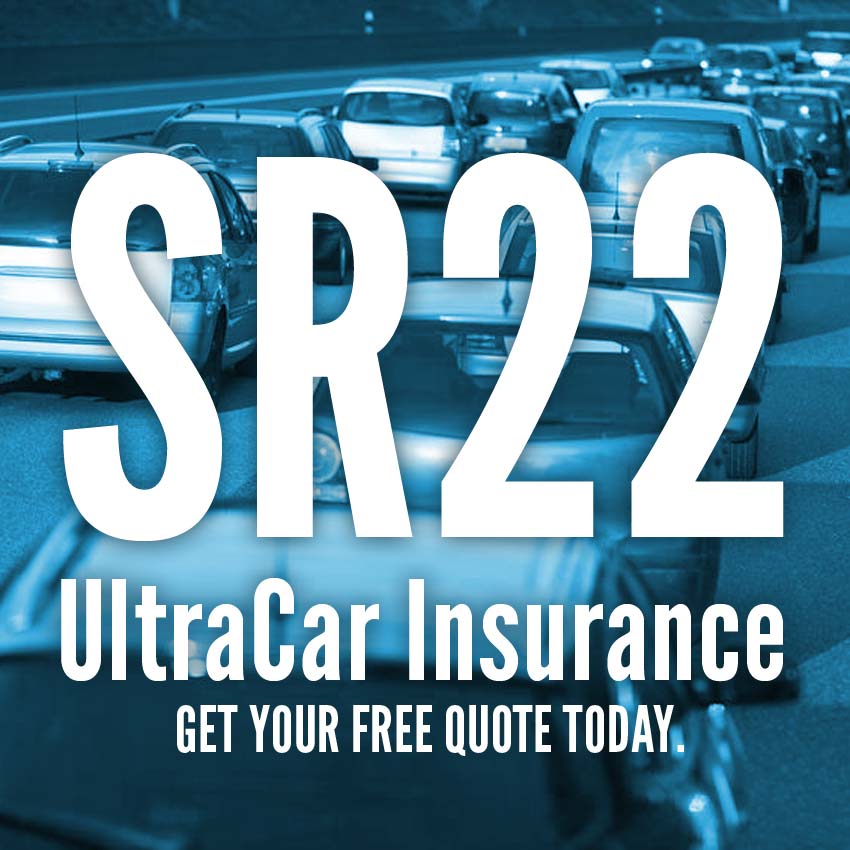What’s the difference between non owner SR22 vs SR22 insurance? You’ll use SR22 insurance if you own a vehicle, and SR22 non owner insurance if you don’t. Whether you need owner or non owner SR22 insurance, the main reason to buy it is to reinstate your license after a suspension. When people have a poor driving record, insurance companies consider them more expensive to insure. Therefore, both types of SR22 are called high risk insurance.
Why do I need SR22 insurance?
There are many reasons your state may require you to carry SR22 insurance. Some of these reasons include:
- A DUI/DWI conviction
- Refusal to test
- Accumulating more “points” on your record than allowed (points are penalties for moving violations)
- Driving without insurance
Circumstances unrelated to motor vehicle violations may also require an SR22 filing. These matters include child support cases, unpaid parking tickets, fines, and other legal judgments.
After a license suspension, the state will require you to carry SR22 insurance to continue driving legally. You may not be eligible for SR22 coverage in certain alcohol-related cases or other situations in some states.
How does non owner SR22 vs SR22 insurance work?
Buying SR22 insurance does not automatically reinstate your driver’s license. You may first have to go through a mandatory suspension period before qualifying to reinstate your license. The state may direct you to fulfill other requirements on a case-by-case basis. Before buying SR22 insurance, make sure you’ve satisfied all conditions to be eligible for license reinstatement. If you need to file an SR22 certificate but don’t own a vehicle, you’ll file a non-owner certificate with your state DMV.
Most states require you to carry SR22 insurance for 3 to 5 years. Whether you need non-owner or owner insurance, it’s crucial never to miss a premium payment during that time. The DMV will immediately suspend your license if you miss even one payment and extend your SR22 requirement. In addition, you’ll have to pay all fees and penalties associated with license reinstatement.
Other types of SR22 insurance
There are other variations of non owner SR22 vs SR22 insurance. The BMV usually requires people to file SR22 and SR50 certificates together for license reinstatement in Indiana. In Florida and Virginia, DUI/DWI convictions require filing an FR44 certificate with the state. Another type of SR22 insurance called Broad Form insurance (see below) is available in several states.
SR22 Owner/Owner-Operator Insurance
SR22 insurance for vehicle owners is called owner or owner-operator insurance. One difference between non owner SR22 vs SR22 insurance is that an owner-operator policy generally costs more than a non-owner policy. Factors that determine your SR22 rate include:
- Your age
- Driving history
- Year, make and model of the insured vehicle
- Type of coverage you want
Depending on the state you live in, you may be able to reduce your rate by purchasing a stand-alone insurance policy and a non-owner policy with an SR22 endorsement. However, only a few states allow this. Please speak to one of our licensed agents to find the cheapest SR22 rate and arrangement for you.
SR22 Operator’s Insurance (Non Owner SR22)
When looking for non owner insurance companies, remember that not all insurance providers offer SR22 insurance. UltraCar Insurance is an established provider of this type of insurance.
An SR22 operator’s policy is called non owner SR22 insurance. The main differences between non owner SR22 vs SR22 insurance are:
- Non-owner SR22 insurance insures you instead of insuring a vehicle.
- A non-owner insurance policy is secondary coverage when you operate a borrowed car.
- Non-owner SR22 insurance helps pay personal injury and property damage claims brought by the other party involved in an accident.
It’s essential to understand the limitations of non owner insurance coverage. A non-owner policy does not insure a borrowed vehicle, so you must ensure that the owner of any car you operate carries insurance on it.
Non-owner SR22 insurance does not cover injuries you sustain in an at-fault accident. It covers other parties’ auto damage, personal injury, and property damage claims if claims exceed the owner’s coverage on the car you’re driving.
Suppose you start with a non-owner SR22 insurance policy and later purchase a vehicle. In that case, you’ll need to convert to an owner/owner-operator policy. Changing your coverage is not an automatic process, so we recommend contacting your SR22 provider for assistance. They’ll help you determine if you can afford the new premium with a car added. Your payments could change a little or a lot. For example, in Florida, the cost of a non-owner policy is relatively reasonable. However, the price drastically increases when you insure a car.
Broad Form Insurance
Broad form vehicle insurance is liability-only coverage that insures all vehicles you own. However, it excludes any cars in your household that are not registered in your name. The big difference with this type of policy is that it only covers you as the driver. No other person is covered to drive your vehicles.
Broad form insurance is slightly more expensive than a non-owner insurance policy. However, instead of carrying insurance on each vehicle, a broad form policy covers all your cars less expensively. This coverage may suit you if you own several older vehicles that you only drive occasionally.
Like non-owners insurance, broad form insurance covers you when driving a borrowed car on an occasional basis, and you can attach an SR22 certificate to it (Broad Form SR22 insurance).
Broad form insurance is not available in every state, and not all insurance providers sell it.
UltraCar Insurance agents know all the ins and outs of non owner SR22 vs SR22 insurance and have licenses in each state we serve. We’re associated with top insurance providers and can find the cheapest SR22 insurance to meet your individual needs. Call us or click the quote button for competitive SR22 insurance quotes today!

